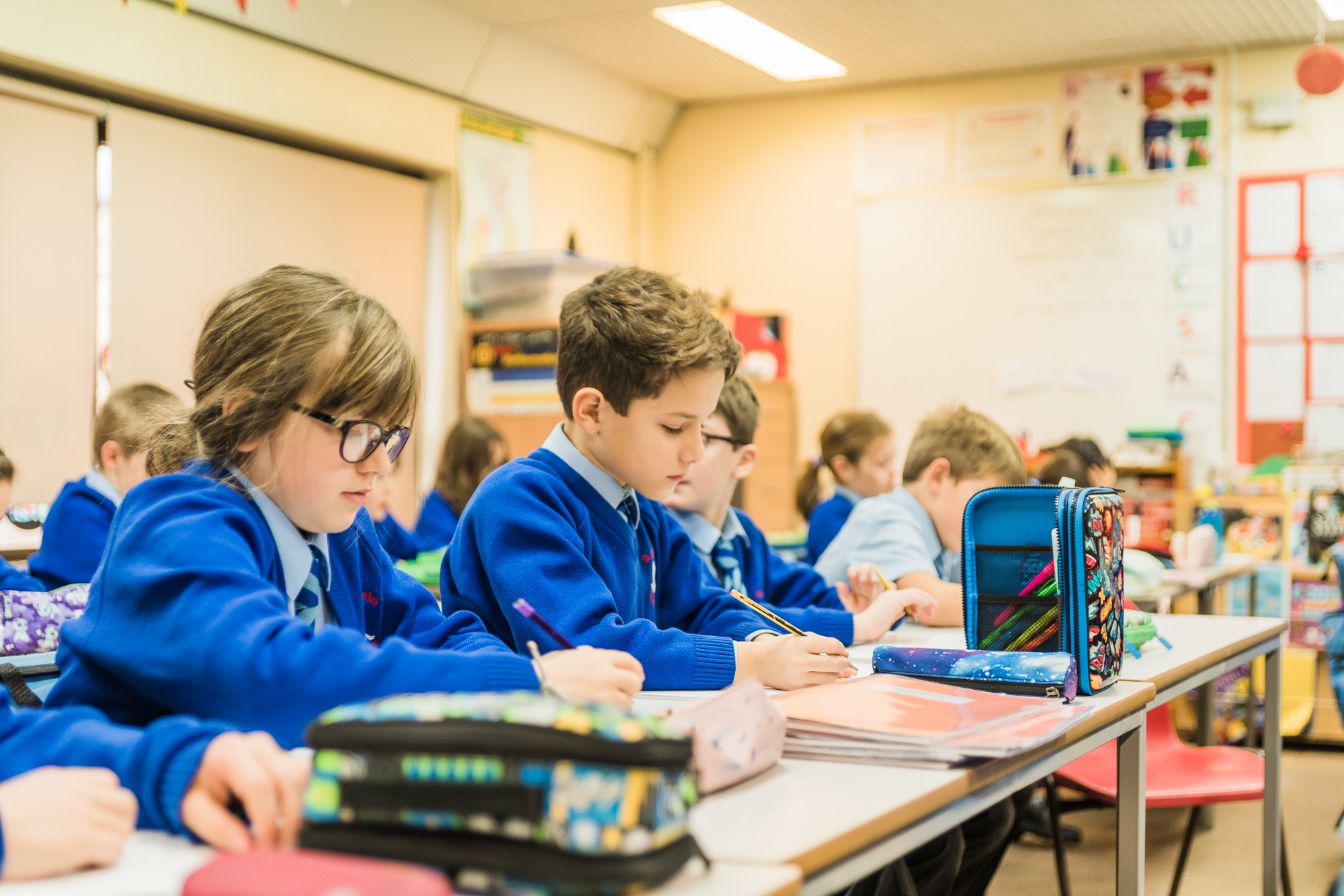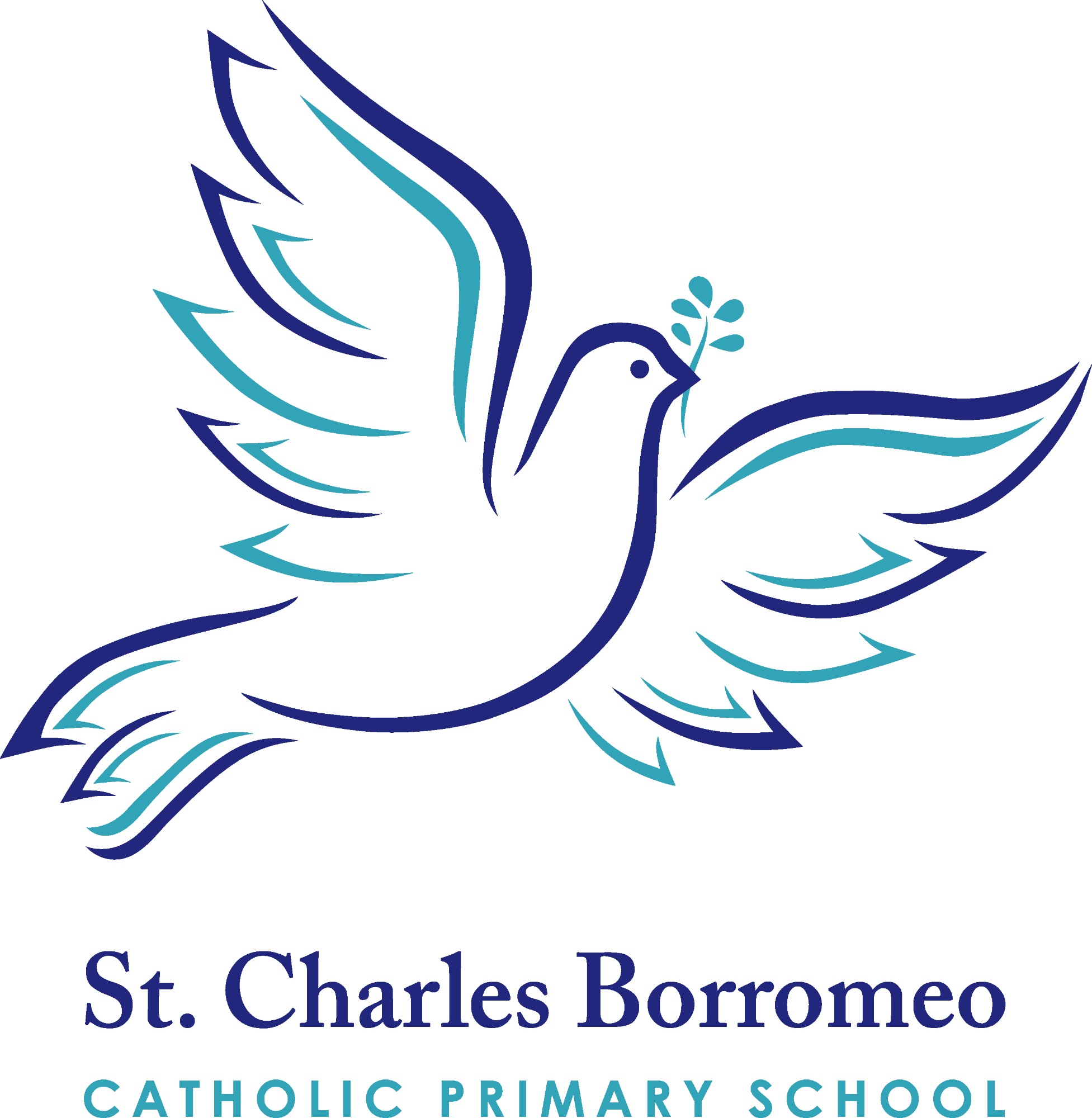Mathematics
At St Charles we use a mastery approach for teaching Maths. Mastering maths means acquiring a deep, long term, secure, adaptable understanding of the subject. It is a way of encouraging children to love maths and to change the belief that a large proportion of people cannot do maths. It is a belief that all children can succeed if they work hard.
Mastery is about building firm foundations through fluency, reasoning and problem-solving. It is about extending children through depth rather than acceleration. This ensures that all children are challenged throughout a lesson.
With mastery, children are taught through whole class interactive teaching, where the focus is on all children working together on the same lesson at the same time, as happens in Shanghai. This ensures that all children can master concepts before moving on to the next part of the curriculum sequence, ensuring that no child is left behind. If a pupil fails to grasp a concept or procedure this can be identified quickly and early intervention ensures the pupil is ready to move forward with the whole class in the next session.

Significant time is spent developing deep knowledge of the key ideas that are needed to underpin future learning. The structure and connections within the mathematics are emphasised so that pupils develop deep learning that can be sustained.
Procedural fluency and conceptual understanding are developed together because each support the development of the other. Mastery recognises that practice is a vital part of learning, but the practice used is intelligent practice that both reinforces procedural fluency and develops their conceptual understanding.
We use the Power Maths scheme of work ensure progression, coverage and depth of knowledge for all learners.
Key facts such as multiplication tables and addition facts within 10 are learnt to automatically to avoid cognitive overload in the working memory and enable pupils to focus on the new concepts.
At St Charles, we teach children calculations using a concrete, pictorial and abstract approach-see the Maths Hub calculation document that we follow below. It is vital that all children have access to these three methods so that they acquire deep understanding of mathematics.
Early Years
Mathematics in the Early Years Foundation Stage Curriculum comes under two strands, each of which has an Early Learning Goal attached:
Number - Early Learning Goal
- Have a deep understanding of number10, including the composition of each number
- Subitise (recognise quantities without counting) up to 5
- Automatically recall (without reference to rhymes, counting or other aids) number bonds up to 5 (including subtraction facts) and some number bonds to 10, including double facts
Numerical Patterns - Early Learning Goal
- Verbally count beyond 20, recognising the pattern of the counting system
- Compare quantities up to 10 in different contexts, recognising when one quantity is greater than, less than or the same as the other quantity
- Explore and represent patterns within numbers up to 10, including evens and odds, double facts and how quantities can be distributed equally
The Early Learning Goals define the level of development children are expected to attain by the end of the Reception year. The vast majority of pupils at St Charles achieve these Early Learning Goals.
As with all other Areas of Learning, the teaching and learning of mathematics in our Nursery and Reception classes takes place both indoors and outdoors through a wide range of practical and "hands on" activities.
The staff use their knowledge and expertise to plan for a high quality learning environment which provides children with lots of opportunities to explore different aspects of number and shape, space and measures and learn new concepts. The children have a wide range of structured play resources available to them throughout the year - this is known as "continuous provision". The adults model the use of these resources and the appropriate mathematical language as they support the children in their play.
We use White Rose to ensure that our curriculum matches with our ethos of Teaching for Mastery and the children follow the DfE Mastering Number programme which continues through to Year 2.
Key Stage 1
The main focus within Mathematics in Key Stage 1 is to ensure that pupils develop confidence and mental fluency within whole numbers, counting and place value and also to begin to embed these skills in their problem-solving. This involves working with numerals, words and the four operations. Children are encouraged to use mathematical vocabulary when discussing different topics. Mathematical vocabulary is displayed in classrooms and around our school to ensure that children have access to it on a day-to-day basis.
Our Year 1 children continue to use White Rose, then Year 2 start the Power Maths programme which uses White Rose as its foundation and becomes our scheme of work up to Year 6.
Key Stage 2
In Key Stage 2, children continue strengthening their knowledge and understanding of the four operations and apply this knowledge in a variety of ways solving problems and completing a variety of investigations.
At St Charles, we acknowledge the importance of children being able to apply mathematical knowledge to real life experiences; it is essential, therefore, that children develop strong mental maths skills to achieve this. To become confident in developing mental maths strategies, the children must know their times tables. Regular practise is planned for in the delivery of Mathematics but we do ask that extra time is spent learning these number facts at home.
The 2014 Mathematics National Curriculum expects that by the end of Year 4, children will know all the times tables facts up to 12 x 12. We use a variety of approaches to support the children in this including the use of Times Tables Rockstars.
Early Morning and After School Intervention Groups
Teacher led Early Morning Intervention groups take place every morning between 8.30 and 9.30. These are open to children who have been identified for extra support. Some are led by Third Space learning- these are an hour in duration, and others are run by teachers- half an hour in duration.
After school clubs are run by teachers and are 45 mins, targeting a range of abilities so that there is a fair chance to access further study.
Impact
We are ambitious for all pupils to reach at least ARE, please see our website for our most recent results (School Information > School Results).
A range of formal and informal assessments are carried out by all teachers to ensure that each child progresses at their own rate. Throughout the school children are taught mathematics by their class teacher in mixed ability classes. All pupils have a daily mathematics lesson, in addition to the daily lesson, various intervention groups are in place in school to support all learners. There is also a discrete Arithmetic session across the school focusing on specific calculation methods.
Useful Websites:
National curriculum in England:
https://whiterosemaths.com/schemes-of-learning/primary-sols/
Oak Academy resources by year group
